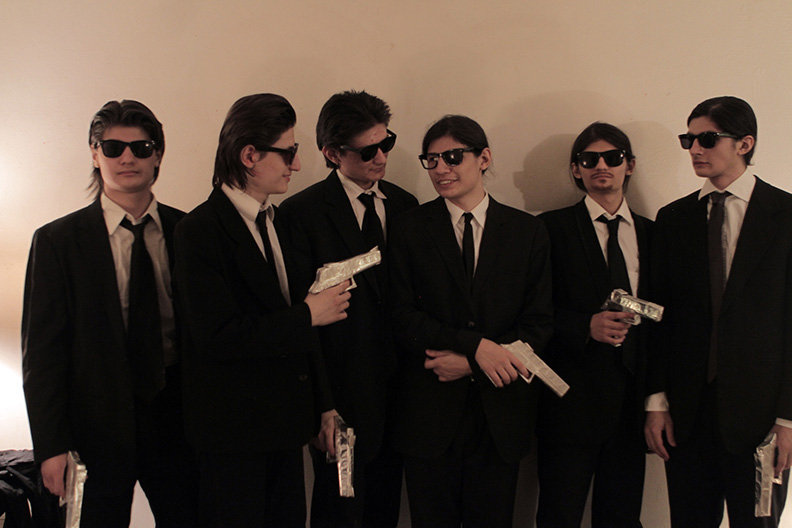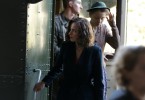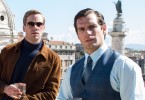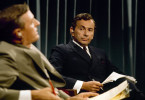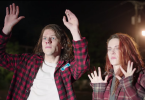The Wolfpack
Director: Crystal Moselle
5:30 p.m. and 8 p.m. Friday–Saturday, 2 p.m. Sunday
Oklahoma City Museum of Art
B+
For as long as they’ve been around, filmmakers have been making movies about the movies. From Gene Kelly and Stanley Donen’s Singin’ in the Rain to Federico Fellini’s 8½, nearly every corner of the moviemaking map has been covered through the years, and through a variety of stylistic lenses to boot. But The Wolfpack — director Crystal Moselle’s striking debut feature and winner of this year’s Grand Jury Prize for a documentary at Sundance — casts the power of cinema under a murky new light, focusing instead on how the movies themselves can mold us as emotional creatures, and telling an incredible story of her own in the process.
Moselle met the Angulo brothers — ranging from 11 to 18 years old at the time, with hair down to their backs and dressed as if they’d just left the Reservoir Dogs set — by chance encounter in Manhattan in 2010. A friendship then blossomed over a shared affinity for certain movies, and after sharing their unlikely, almost unbelievable backstory, the Angulos invited Moselle into their cramped Lower East Side apartment, where she would film her documentary. At the time, Moselle was the family’s first guest in their nearly 20 years of residence in the neighborhood. And if that sounds strange, prepare to be stupefied: The brothers (and their younger sister) had only left the apartment a handful of times for the entirety of their lives, sometimes going an entire year without walking through the front door. Their literally sheltered childhoods were the wishes of their father, a Peruvian immigrant with a radical distrust of the American government and society as a whole, and their mother, a soft-spoken Midwesterner who was tragically convinced that shielding her children from the society’s hazards was for the best.
Because they had so little experience in the outside world, the Angulo brothers’ (named Bhagavan, Govinda, Mukunda, Narayana, Jagadisa, and Krsna) only knowledge of it came through their massive DVD and VHS collections, which featured classics like Casablanca and contemporary standards like Pulp Fiction. To pass the time (of which they had a lot), the boys recreated entire scripts of their favorite films, then memorized the lines, built props and costumes from household materials, and reenacted scene by scene with remarkable detail — all from within the confines of their apartment. This was more than just an expression of a love for movies, though; it was how these kids lived, their way of experiencing the real world — or at least their perception of it — and assuaging their mounting curiosity.
But there’s a point at which a massive home video collection will no longer suffice. Through a series of candid, expertly shot interviews, Moselle documents their determination to flee, to experience the lives of which they had been robbed. Much of the documentary examines these grand-scale desires, but it also depicts more subtly meaningful life events, like walking barefoot on a sandy beach or going to a movie theater for the first time. It’s in these moments of understated significance are when The Wolfpack is at its most potent and captivating.
Questions will be raised about whether the Angulos’ story had been exaggerated for artistic license — a definite no-no in the documentary world — and how exactly Moselle was permitted such a degree of access to such a hermitic home. Others will critique the film’s focus on the group rather than examining the brothers as individuals (they all look strikingly similar to one another, and Moselle never really puts names to faces). But The Wolfpack, like many of cinema’s most revered achievements (many of which it references), serves as a reminder of the immense mental and emotional spectrum that the medium often explores, reaffirming the idea that it isn’t as much about the story, but who’s telling it and how it’s being told.

